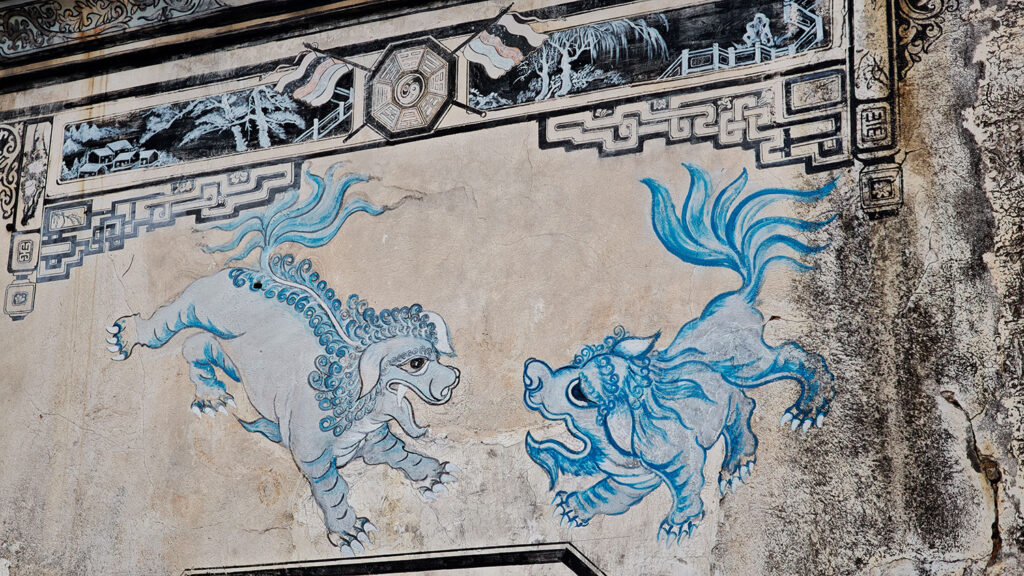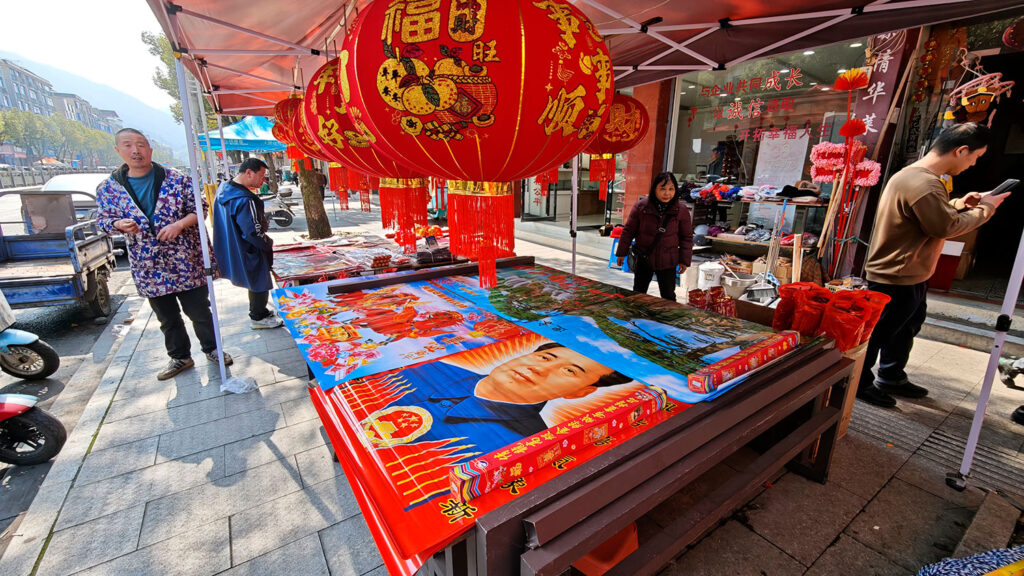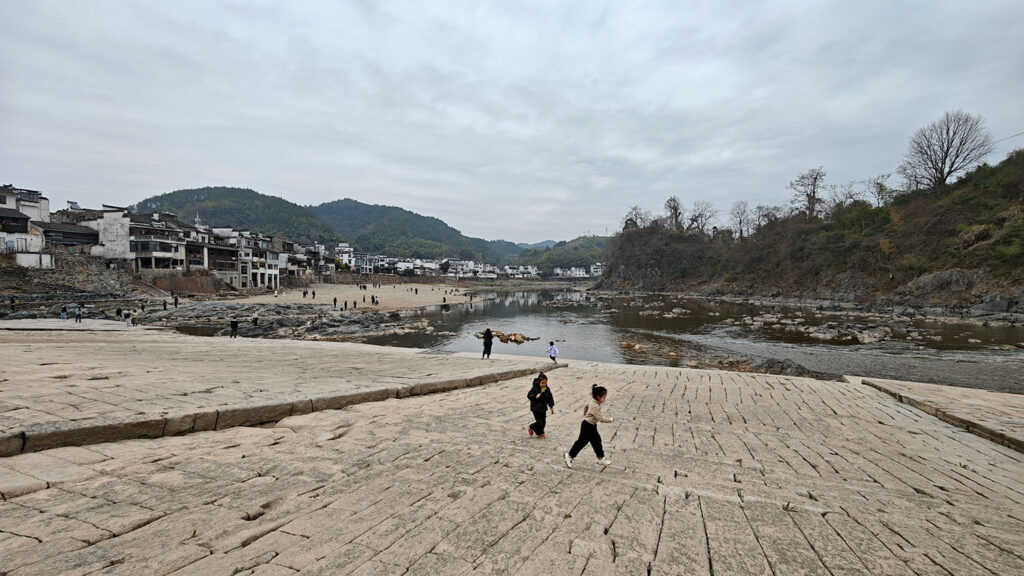I am not sure, which or who changes faster; cities or people. Cities never change all at once, but rather block by block. This is how cities keep their character, although they constantly evolve. And maybe people aren’t so different.
People say Shanghai changes so fast, but its DNA hasn’t changed in over 150 years. It’s the most international city of China as well as the richest. It flows fast. People and shops appear on the streets, replaced by new ones not much later. I’ve now been here for almost seven years. On the upside, you meet so many places and friends, but on the downside, they both quickly disappear, that it sometimes feels like a huge networking drink.
For a foreigner in Shanghai, also personal change is fast. Block by block. The core of my character may not have changed, but I did age. I’m reminded of a poem from Orson Scott Card:
“I once heard a tale of a man who split himself in two.
The one part never changed at all; the other grew and grew.
The changeless part was always true, The growing part was always new,
And I wondered, when the tale was through, Which part was me, and which was you.”
So here are some things I feel I learned from living here.
1: Values
I moved to Shanghai in 2018 with in my mind a lot of things I held to be true, about the world and about myself. I changed my mind on many of these. Some of it may be unrelated to China, others may just be due to aging. Yet it must also be environment. One can never ‘just be yourself’ because you always reflect your identity to other. And when your environment changes, so do you.
I always thought I had an open and unbiased view on the world, and I thought moving to China would only strengthen that, and my own role as a true ‘cosmopolitan’. But in fact it has only confronted me how unavoidably Dutch I am, and that being a world citizen is difficult, if not just impossible.
Culture isn’t hanfu, eating fish during Chinese New Year, or taking your shoes off in the house. That’s just trivia or etiquette. It’s not as if you eat jianbing that you suddenly understand China. You do not describe a country’s culture by whether they like to shake hands or not. That’s something for Reader’s Digest.
Culture goes much deeper, into what people and society value, how family members relate to each other, and how one person occupies their place in the world, and that world towards them. You see those values in advertising, in new laws being written, and in choices made. It’s rarely phrased explicitly, but you can see and feel it in decisions made.
I expected Dutch and Chinese society (at least in the Yangtze Delta) to be way more different, but the thing that surprised me was the lack of an enormous culture shock when moving to Shanghai. People will say Shanghai isn’t the real China and they’re right. But they also forget that people from all provinces and income classes flow to Shanghai to try their luck. With all of this, the observations that stand out are that family roles are different, as well as people’s relationship with money. And maybe these two spring from the same source.
For many older Chinese people, poverty is a living memory. If you grow up while being hungry every day, and losing siblings to hunger, your soul becomes wired to survive in such an environment. And it takes generations to ebb away.
When I just arrived in China, I felt that the obsession to display wealth is extremely shallow (and I still think it is). Back then, I also felt the focus on money was so weird; to pay a dowry or the demand for the male side to own a house and car. This is not a business deal?
But it made more sense to me when I lived here longer, and realized that Western financial safety nets do not apply here. In the Netherlands, if you lose your job, there’s social security. But if you fall sick in China, who’ll provide for your family? Not you, when you’re sick. Perhaps your extended family will. In the Netherlands, if you have a low-income job, that’s still a lot of money you’re bringing home every month, because the minimum wage is high. But in China, if you didn’t go to a good university, you could be doing in a low-income job until you retire. This has a much bigger effect on your life.
I learned not to always ‘translate’ culture, but to look deeper. It’s similar to learning Mandarin. Foreigners do well to stop translating every sentence from their mother tongue into Chinese and vice versa. Let go and focus on the language you’re trying to learn. The same goes for culture. Stop comparing details, and see things within a wider context.
The way money is handled trickles down in so many things. It’s why rich guys marry rich girls and vice versa (门当户对). The behavior of eating out or ordering food is way rarer in the Netherlands, as minimum wage makes everything more expensive. The pressure to get a good job means stressed parents to get their child into a good university, and this trickles down to kindergarten and the insane homework pressure kids have. Chinese people often eat outside or order food, because many people working in the food sector may be on low-paying jobs.
Chinese society has many prisoner dilemmas. If the neighbour’s child studies harder, your child also has to study harder. All to escape the faith of being a lifetime barista at Starbucks, or worse; working in a factory. When you factor that in, I can understand why money is so important. And that being me being Dutch, makes me have a different relationship with it, as well as with my family.
In the Netherlands, even with a basic education and a basic job, you can earn enough money for yourself, and don’t have to rely on your family. There is less pressure to avoid the faith of working at Starbucks, and there are barely any factories in the country (and even if you’d work there, there is minimal wage and protection against overwork).
In the Netherlands, you may expect less help from your family, but relationships are less tense and formal because of that as well. Students can call out teachers if they’re wrong, and the same goes for children with their parents. Money takes a less important place, because while there isn’t more abundance, there for sure is less of a scarcity of it.
These are just some examples but the main takeaway with values, be it in personal life or how politics are set up, is that once you live in a new culture, you realise that this system can also work, whereas at first you thought your native one is the only one that makes sense.
2: Non-confrontational
Another cultural difference is that the Chinese are extremely non-confrontational. If you walk on a cycling path in the Netherlands, you’ll get all sorts of curse words thrown at you. The good part of this is that, next time, you won’t walk there anymore. But in China, people will shrug. There are just too many people here, so what’s the point at trying to correct others. Even in a fender bender accident, people will just sigh and barely quarrel. What’s the point? You will never see these people again. This can be frustrating, but the good part is that I also can ignore any rule or law that isn’t enforced. I have also jumped plenty of red lights when there’s no car on the road, or reversed against the traffic on bicycle lanes when it suited me. When driving, I go full 入乡随俗 and also merge onto the exit lane at the last moment. I don’t queue at the back of the line.
Sometimes being non-confrontational is innocent. It’s a game we all play. Required internal training in a Chinese company means playing twenty videos at double speed in muted browser tabs while you’re doing other things, and getting the exam answers as screenshots from your colleague. And then in the group chat, everybody compliments others on how useful the course has been. Other times it’s annoying. The neighbors are drilling holes in the wall, late at night, and you ask when it’s finished. “马上好了” (done soon) they’ll say. But that could be five or fifty minutes. So anything anyone says can be taken with a grain of salt.
There is a dark side to this. Chinese society is low on trust. When people are nice to you, you don’t know if they’re just being 客气 (polite) or actually mean it. And in a Dutch office, people will tell you when they don’t agree and when you should change your method or plans. Yet in a Chinese workplace, people will seemingly support you until they don’t and by then it’s too late to change course. Dutch people are rude, but you won’t find any backstabbers in the office.
This is all worse when you’re a foreigner in China. Any slight disagreement can be laughed away because “Oh you’re a foreigner”. It can be both an external and internal thing. You can always let yourself off the hook by thinking it wasn’t your mistake, it’s just that you’re not a native Chinese person. Or colleagues will not see your opinion as valid because you’re a foreigner, and not explain specifics. It’s easy and non-confrontational, because you don’t have to admit you really made a mistake, or colleagues don’t have to agree their plan (or yours) is wrong. But you shouldn’t allow for any of these excuses. Hold everyone, including yourself, to reason, even if it comes at the cost of some confrontation.
3: Everything is a miracle
Sometimes when I go to the restroom of a restaurant in Shanghai, there’s a painting of the Amsterdam canals. When I lived in Amsterdam and cycled passed them every day, I never appreciated them, and I also never went to most of the museums there. But now, with some regret, I think the canals are pretty special and I didn’t enjoy it enough at that time.
Living in the Yangtze Delta, I’ve been suddenly more interested in history, be it Dutch or Chinese or anything. And I love going to random places, as long as they’re not a shopping mall. Shopping malls are not organic, they have no life in them. They’re copy-pasted modules that are the same all over the world. I want to go to an old canal from the Song Dynasty, the riverside with cheap barbecue stands, a bridge without a river, an old post station visited by Marco Polo, or just any village outside of Shanghai. These places bring a variety to life, and when you look back on your month or year, you’ve seen a lot of different things, and a year looks longer than when you’ve just done the same thing over and over again.
It could be that I just aged into this, but I think being in China as a foreigner did spark this interest. And the more I involve in it, the better I understand the language, the more interesting it becomes. My attitude to Shanghai and its surroundings is that it’s basically a huge map with a lot of side quests and areas to discover.
I never was this type of person in the Netherlands, but I’m sure if I ever live there again I will spend my weekends like that. Photographing. Taking notes. Observing. Searching online for new spots. In fact, I already have a list of places I want to visit in the Netherlands, but each trip back home is so filled with family visits that I barely have the time.
It’s being put in a new environment that made me fall in love with exploration. And the more you explore, the better it becomes.
One of the most interesting places to explore have been churches. We used to go to church in my mother’s hometown, and I could not make sense of any of the Latin songs and the rituals. We just had to go there. Our bodies were expected, but no expectation was put on our faith, whether we believed in God or not.
I never fully understood those Sunday mornings, neither the whole grand idea of religion. I am still not that interested in faith, but I am intrigued by what Christianity means in culture, and what it means in my life. I don’t have the answer yet. But churches in China are a magnificent combination of familiar Christianity in this foreign country.
Nostalgia isn’t always healthy but it also makes me understand myself better.
Your mother tongue is invisible when you hear it all around you, but it becomes so distinct when you haven’t heard it in a while. Living in China, I now love the sound of the Dutch language, and also specific words that describe things so specifically that you cannot translate it into Mandarin. I suddenly love listening to Dutch music or podcasts in Dutch.
It’s one of many things, of how in China I’ve been reconnecting with things from my youth.
I listen to my dad’s music, watch movies, and read books he must have read in the 80s and 90s, when he was my age, when he had to make decisions I now have to make, be it about personal life or work. You don’t read a book in a vacuum; you see the story in the context of your own. And I wonder, what did my dad feel reading this?
Photography has a place in all of this. I think the value of photos changes as you age. In your twenties, a decade in the future is so far away you don’t think it’ll ever really arrive. But in your thirties, you can look ten years in both directions. This also changes the type of photograph that I value. Not the selfies, photos of landmarks, but more honest ones of daily life; streets, people, workplaces.
I think this is what religion really is, in its purest essence. It is not about which face or name your god has, but religion on a deeper level is the exploration of the mystery of life. Each and every one of us are an expression of that mystery.
That mystery has become deeper since moving to Shanghai, now almost seven years ago. It’s a journey that has changed my family life, working life, and the way how I look at things — from the places I’ve lived to the culture I’ve grown up in, and the culture I live in now.




